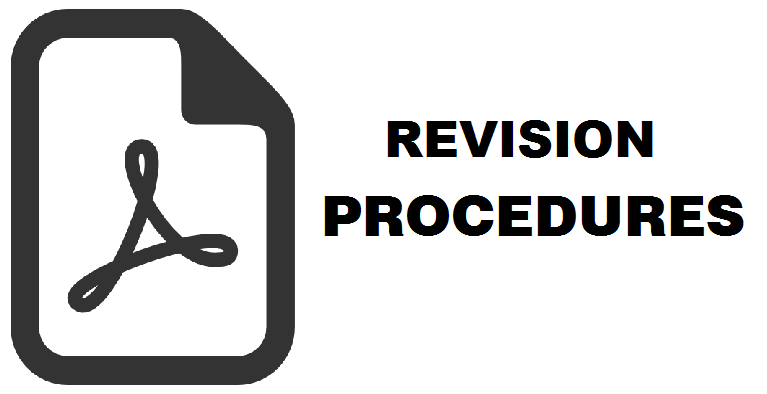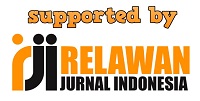Ruang produktif dan ruang leisure: bagian dari praktik konsumsi ruang Perpustakaan Pusat Universitas Gadjah Mada oleh pemustaka digital natives
Endang Fatmawati(1*), Wening Udasmoro(2), Ratna Noviani(3)
(1) Sekolah Pascasarjana Universitas Gadjah Mada, Yogyakarta
(2) Sekolah Pascasarjana Universitas Gadjah Mada, Yogyakarta
(3) Sekolah Pascasarjana Universitas Gadjah Mada, Yogyakarta
(*) Corresponding Author
Abstract
Introduction. The practice of library space consumption is very important to be elaborated by using cultural and media perspective, becaus it elaborates on the problem of why digital native users interpret of space. This article is part of a dissertation research, which describes social practices and space representation by digital native users at UGM library.
Data Collection Method. It is a qualitative research with participant observation, interviews, and supporting documentation, involving six informants selected purposively.
Analysis Data. Ethnographic approach is carried out by paying attention to the meaning of the actions of the events that occur in digital native users.
Results & Discussions. The results showed that UGM library space was used as productive and non-productive space. As productive space means that digital native users leveraged teh space for learning or other activities related to their study. Meanwhile, non-productive space refers to space to spend their leisure activities. The result showed that digital native users in leveraging the space did not correspond to the initial function of the space. There was inconsistency with the representations of space that was originally designed by the UGM library. Digital natives had their own way of leveraging the library space.
Conclusion. There are other motivation how digital native users leveraging the library space. In representational space, digital native users have their own interests. Further research should discuss more specifically in revealing reasons of space use from another theories or perspectives.
Keywords
Full Text:
PDFReferences
Barker, C. (2013). Cultural studies: Teori & praktik. Yogyakarta: Kreasi Wacana.
Barner, K. (2011). The library is a growing organism: Ranganathan’s fifth law of library science and academic library in the digital era. Library philosophy and practice 2011. Diambil dari http://digitalcommons.unl.edu/cgi/viewcontent.cgi?article=1579&context=libphilprac
Baudrillard, J. (2009). Masyarakat konsumsi. Terjemahan La societe de consommation. Yogyakarta: Kreasi Wacana.
Blasco, P.G. & Wardle, H. (2007). How to read ethnography. London: Routledge.
Choy, F. C. & Goh, S. N. (2016). A framework for planning academic library spaces. Library Management, 37(1/2), 13–28. https://doi.org/10.1108/LM-01-2016-0001
Connaway, L. S. & Radford, M. L. (2017). Research methods in library and information science (6 ed.). California: Libraries Unlimited.
Fagbola, O., Uzoigwe, C., & Ajegbomogun, V. O. (2017). Libraries Driving Access to Knowledge in the 21st Century in Developing Countries : An Overview. Library philosophy and practice 2011. Diambil dari https://digitalcommons.unl.edu/libphilprac/566
Faruk. (2014). Metode penelitian sastra: Sebuah penjelajahan awal. Yogyakarta: Pustaka Pelajar.
Fatmawati, E. (2017a). Functional shift of library: Third space production. In International Conference on South East Asia Studies (ICSEAS) 2nd. Yogyakarta, on September 27-28.
Fatmawati, E. (2017b). Representation of academic library space as interests contestation. In The International Conference of Vocational Studies on Applied Research (ICoVAR). Semarang, on September 13-15.
Fatmawati, E. (2017c). The interpreting practices of digital native users for library spaces. In The 9th International Graduate Students and Scholars’ Conference in Indonesia (IGSSCI). Yogyakarta, on August 9-10.
Fatmawati, E. (2018). Users Information Behavior as a Lifestyle to Build Distinction in New Normal Era. In International Conference On Knowledge and Scholarly Communication. Yogyakarta, May 14-15, 2018.
Goonewardena, K., Kipfer, S., Milgrom, R., & Schmid, C. (2008). Space, diffrerence, everyday life: Reading henry lefebvre. New York: Routledge.
Gu, X., Zhu, Y., & Guo, X. (2013). Meeting the digital natives: Understanding the acceptance of technology in classrooms. Educational Technology & Society, 16(1), 392–402.
Helsper, E. & Enyon, R. (2009). Digital natives: Where is the evidence? British Educational Research Association, 1–18. Diambil dari http://eprints.lse.ac.uk/27739/
Lefebvre, H. (1991). The Production of Space. Translated by Donald Nicholson-Smith. USA: Blackwell Publishing.
Nell, V. (1988). (1988). The psychology of reading for pleasure: Needs and gratifications. Reading Research Quarterly, 23(1), 6–50. Diambil dari https://msu.edu/~dwong/CEP991/CEP991Resources/Nell-RdngPleasure.pdf.
Oliveira, S. M. (2018). Trend in academic library space: From book boxes to learning commons. Open Information Science, 2(1), 59–74. Diambil dari https://doi.org/10.1515/opis-2018-0005.
Schmid, C. (2008). Henre lefebvre’s theory of the production of space: Towards a three-dimensional dialectic. In K. Goonewardena, S. Kipker, R. Milgrom & C. Schmid (Eds.), Space difference everyday life: Reading henri lefebvre (hal. 27–45). New York: Routledge.
Sequeiros, P. (2013). Reading in public libraries: Space, reading activities, and user profiles. Sociology Review, 9(3), 220–240. Diambil dari http://www.qualitativesociologyreview.org/ENG/archive_eng.php.
Torkildsen, G. (2007). Leisure and recreation management (5th ed.). New York: Routledge.
Ugwuanyi, CF., Okwor, RN., & Ezeji, E. (2011). Library space and place: Nature, use and impact on academic library. International Journal of Library and Information Science, 3(5), 92–97.
Veblen, T. (2007). The theory of the leasure class. New York: Menton Book.
Wilson, J. (2013). The devasting conquest of the lived by the conceived: The concept of abstract space in the work of henri lefebvre. Space and Culture, 16(3), 364–380.
Article Metrics
Refbacks
- There are currently no refbacks.
Copyright (c) 2018 Berkala Ilmu Perpustakaan dan Informasi

This work is licensed under a Creative Commons Attribution-ShareAlike 4.0 International License.











